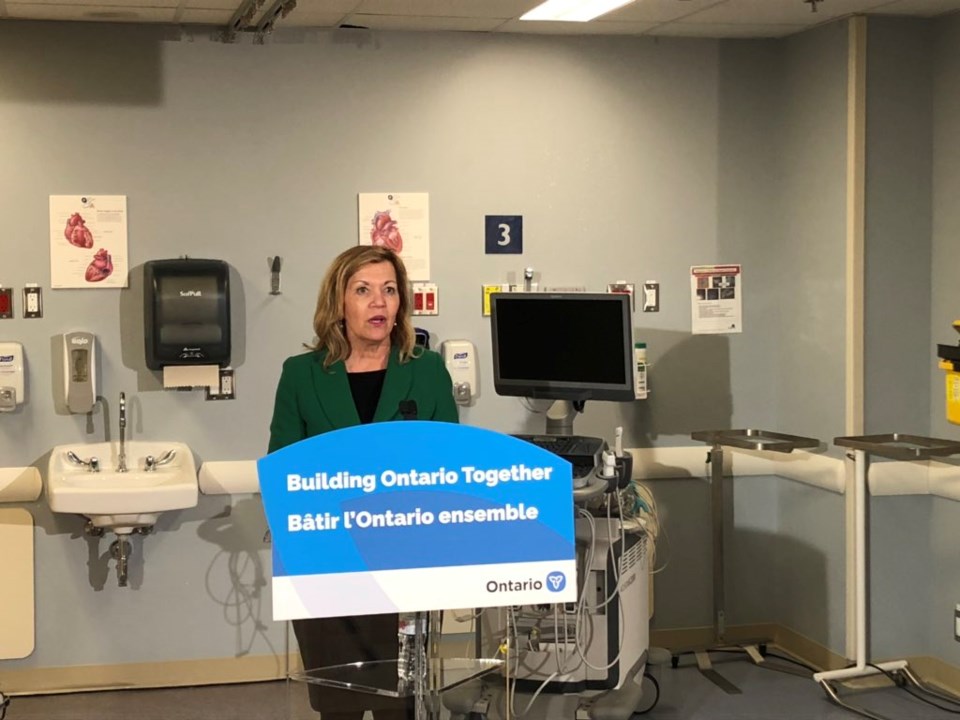TORONTO – The province says it plans to significantly expand COVID-19 testing across Ontario and have promised testing to anyone showing symptoms of the disease.
“I want to be clear,” said Health Minister and Deputy Premier Christine Elliott on Friday, during a daily briefing in Toronto.
“Anyone exhibiting symptoms of COVID-19 can, and will, be tested at the recommendation of their physician or physician at an assessment centre. We're able to implement this next phase because of the extensive efforts to expand lab-testing capacity here in Ontario.”
The goal is to double the number of daily tests to 8,000 by April 15 and up it to 14,000 by April 29, when lab technology has been expanded.
Thunder Bay Regional Health Sciences Centre is in the process of setting up its own analysis lab, but is waiting for reagents to arrive before it can be implemented.
"By significantly increasing the number of tests each day, we will identify cases early, contain them and prevent putting more people at risk," Elliott said in a release issued by the province.
"Doing so is especially important for priority groups like hospital inpatients, long-term care home residents and our brave frontline health care workers and first responders, all of whom are more vulnerable to being exposed to this virus. Nothing is more important than protecting their health and wellbeing."
A number of groups have been singled out for priorty testing.
Included on the list are hospital inpatients and residents of long-term care and retirement homes. Health-care workers, caregivers and care providers, paramedics and first responders are also on the list, as are remote, isolated, rural and Indigenous communities.
Homeless shelters, prisons and group homes will also be prioritized, as will certain vulenerable populations, including patients undergoing chemotherapy and hemodyalisis, those requiring transplants, as well as preganant women, newborns and cross-border workers.
Other essential workers, as defined by the province, are also on the list.
"We're laser-focused on ramping up our testing capacity so we can protect the most vulnerable in our communities and those who protect them, like our frontline health care workers and first responders," Ford said.
"By expanding our testing capacity, we will be able to find cases faster, intervene earlier, reduce the spread, and save lives."
To date, the province has tested 94,000 people for COVID-19.
The province has also updated its list of virus symptoms, including a hoarse voice, difficulty swallowing, loss of sense of smell or taste, diarrhea or nausea/vomiting.
Additional symptoms for seniors include chills, delirium with no other obvious reason, falls, acute functional decline, increased heart rate and decreased blood pressure. These updated symptoms are in addition to difficulty breathing, fever, cough, muscle aches, fatigue, headache, sore throat and runny nose.
